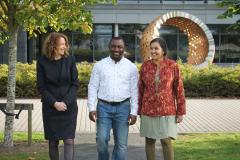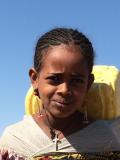WATERSPOUTT Project

Water-Sustainable Point-of-Use Treatment Technologies (WaterSPOUTT) aims at providing safe drinking water to communities who rely on unsafe sources. The project seeks to transform access to safe drinking water through integrated social sciences, education & solar technologies, thus improving health, survival, societal well-being & economic growth in African developing countries. It is funded by the European Union's Seventh Framework Programme for research, technological development and demonstration/ERC under grant agreement Number 688928.

WaterSPOUTT's social science team aims to:
- Build an integrated understanding and a profound analysis of the social, political and economic context of water use, needs and vulnerability in the four specific communities
- Identify the relevant governance practices that potentially impact water resources, and in particular the use of integrated solar technologies for point-of-use drinking water treatment in these communities
- Examine the effect of gender relations on domestic, local and national governance of water resources, and on local and household decision-making on uptake of solar water harvesting and SODIS reactors technologies
- Determine the challenges faced at household, community, regional and national level in four African countries for the adoption of solar water harvesting and SODIS reactor technologies including the effect of gender relations on their uptake
- Build capacity of local actors and governance structures at community level by assessing and advising on local governance structures and participation in governance in the four case-study areas
- Co-design community-led, gender sensitive, educational and action programmes for the appropriate uptake of solar technologies
To find out more about the WaterSPOUTT project, please visit WaterSPOUTT

